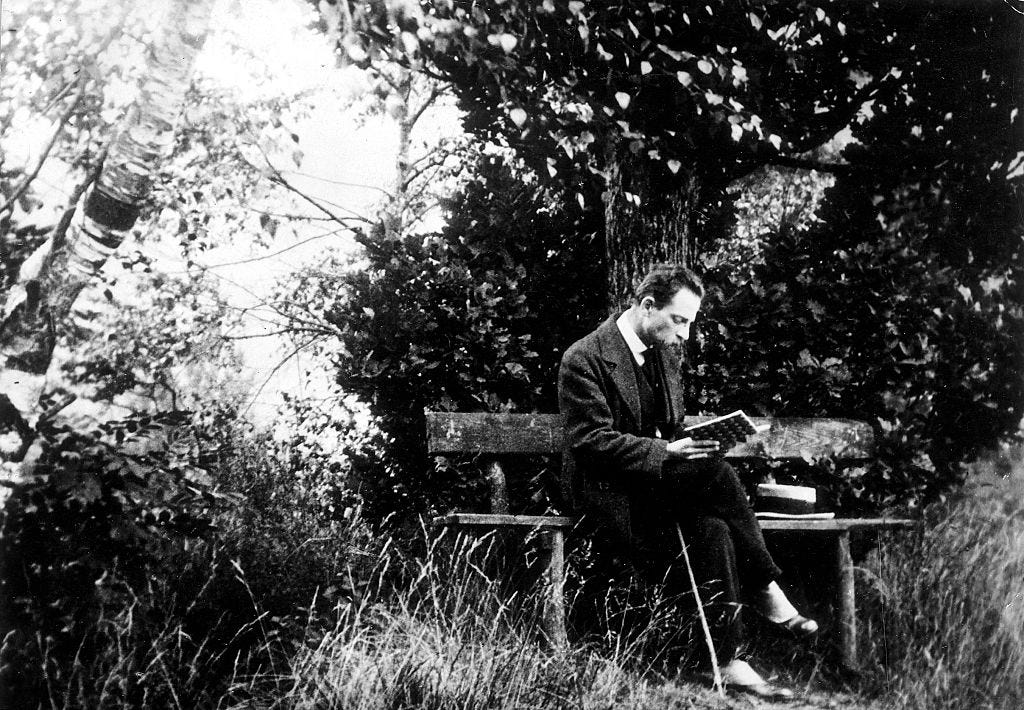His life has now passed over into yours
Rilke writes to a grieving friend
The following letter was written on this day in 1913. It was first reprinted in 1950 in Briefe. Vol. 1: 1897-1914. Edited by K. Altheim. Published by Insel-Verlag.
It was in 1906 that Bohemian aristocrat Sidonie Nádherná von Borutín first met Austrian poet Rainer Maria Rilke, beginning a lengthy friendship sustained through hundreds of letters that touched on love, art, and loss. Seven years into that relationship, in July of 1913, Nádherná’s beloved brother took his own life at the age of 29. Days later, from the seaside town of Heiligendamm, Rilke sent her a letter.
Heiligendamm,
1 August 1913My dear Sidie,
Your letter moves me deeply. On the one hand, I want to encourage you in your grief, so that you may fully experience it in all its depth. For as an encounter with a new intensity, it is a profound experience of life and leads you back toward life again, as all things do that reach a certain degree of extremity. On the other hand, I feel anxious when I imagine how hemmed in and constricted your life must be right now, afraid of bumping into anything filled with memory, and what isn’t filled with memory? You will freeze if you stay like this. You mustn’t, my love. You have to move. You must return to his things, you must lay hands on his things, which, by so many bonds and attractions, are also yours.
You must, Sidie (this is the task that this unfathomable fate lays upon you), you must continue his life within your own, as far as it was left unfinished. His life has now passed over into yours. You, who knew him so completely, can carry it forward entirely in his spirit. Give your grief this task: to discover what he expected of you, hoped for you, wished for you.
If only I could convince you, my friend, that his influence has not vanished from your existence. How much more clearly I feel my father active and helpful within me since he has no longer been among us. Consider this: how much confusion, how much daily disturbance dims and distorts the love of another. Now he is more present than ever, now he is entirely free to be present, and we are entirely free to feel him. Have you not felt your father acting and participating a thousand times over from that space beyond, where everything, everything, Sidie, is beyond loss?
Don’t believe that something which belonged to our purest realities could disappear or cease to be. What once had such a sure effect on us was already a reality independent of all the circumstances familiar to us here. That’s why we felt it so differently, with such unconditioned longing. Because it was already not rooted in this world or determined by it.
All our true relationships, all our deepest experiences stretch across the whole, Sidie. Across life and death. We must live in both, be deeply at home in both. I know people who meet the one and the other with the same trusting love. Is life more knowable or entrusted to us than that other state? Are they not both, namelessly, set beyond us, both unreachable? We are only true and pure when we open ourselves willingly to the whole, to the unresolved, to the great, to the greatest.
Ah, if only I could say this to you as I know it. Deep within your grief a core of dark joy would begin to form.
Resolve to be brave. Be brave this very evening. Play Beethoven.
He, too, belonged to the whole.
Yours,
Rainer
This newsletter continues to exist thanks to the generosity of its readers. If you haven’t already, and if you’re able, please consider becoming a paying subscriber or making a donation. And if you can’t do any of that, please spread the word by sharing the newsletter with others. Thank you.




I am stunned by what may be the truth that Rilke writes to his friend. When someone we dearly love leaves us - especially suddenly - we are freer to be close to them and they are freer to be close to us. Profound, comforting and life affirming. Will read this many times as I begin to see death from Rilke's perspective.
How extraordinary and wonderful - and yet at the same time not surprising at all - that Rilke was saying the same thing then, as Andrea Gibson was saying so recently: “Why did no one tell us that to die is to be reincarnated in those we love while they are still alive?”
Thank you, again, for sharing such heart-opening letters as you do.